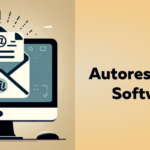In today’s fast-paced world, schools and educational institutions are facing increasing challenges in managing administrative tasks and student information. The manual process of managing school data is often time-consuming, error-prone, and inefficient, which can lead to delayed decision-making, poor communication, and reduced productivity. However, with the advent of technology, there is a solution to these problems – school management software. By implementing comprehensive school management software, institutions can streamline their administrative tasks, improve communication, and enhance student learning outcomes. In this article, we will delve into the benefits of implementing school management software and provide a comprehensive overview of how it can transform the way educational institutions operate. From automated attendance tracking to online fee payment, we will explore the various features of school management software and how they can help schools and institutions improve their overall efficiency and productivity. So, let’s dive in and discover the many benefits of implementing school management software!
Benefits of Implementing School Management Software
School management software has become an essential tool for educational institutions of all sizes. The benefits of implementing school management software are numerous, including:
Improved Administrative Efficiency
One of the primary benefits of school management software is that it can help improve administrative efficiency. With comprehensive school management software, institutions can automate routine tasks such as attendance tracking, grading, and generating reports. This automation can save time and reduce errors, allowing administrators to focus on more critical tasks such as strategic planning and decision-making.
Enhanced Communication
Another benefit of school management software is that it can improve communication between stakeholders. Teachers, parents, and students can use the software to communicate with each other, share information, and collaborate on projects. This improved communication can lead to better relationships, increased engagement, and improved student outcomes.
Improved Student Outcomes
School management software can also improve student outcomes by providing teachers with the tools they need to track student progress, identify areas for improvement, and provide targeted interventions. Teachers can use the software to create and manage lesson plans, share resources, and provide feedback to students. This improved feedback loop can help students stay on track and achieve their academic goals.
Features of School Management Software
School management software comes with a range of features designed to help schools and educational institutions manage administrative tasks and student information. Some of the key features of school management software include:
Automated Attendance Tracking
School management software can automate attendance tracking, making it easier for administrators to keep track of student attendance. The software can also generate reports, notify parents of absenteeism, and track tardiness.
Online Fee Payment
Many school management software solutions come with an online fee payment system that allows parents to pay tuition fees, purchase textbooks, and make other payments online. This can save time and reduce administrative costs associated with fee collection.
Gradebook Management
School management software can also help teachers manage the grade book, track student progress, and generate reports. Teachers can use the software to enter grades, calculate averages, and generate progress reports.
Timetable Management
School management software can also help schools manage their timetables. The software can generate timetables, assign teachers to classes, and allocate resources such as classrooms and equipment.
School Management Software vs. Traditional Systems
Traditional systems for managing school data and administrative tasks are often manual and time-consuming. They can also be prone to errors, which can lead to delays and reduced productivity. School management software, on the other hand, is designed to automate many of these tasks, saving time and reducing errors. It also provides schools with a range of features designed to improve communication, manage student information, and enhance student outcomes.
How School Management Software Can Improve Student Performance
School management software can improve student performance by providing teachers with the tools they need to track student progress, identify areas for improvement, and provide targeted interventions. Teachers can use the software to create and manage lesson plans, share resources, and provide feedback to students. This improved feedback loop can help students stay on track and achieve their academic goals.
How School Management Software Can Improve Administrative Tasks
School management software can improve administrative tasks by automating routine tasks such as attendance tracking, grading, and generating reports. This automation can save time and reduce errors, allowing administrators to focus on more critical tasks such as strategic planning and decision-making. School management software can also provide schools with a range of features designed to improve communication, manage student information, and enhance student outcomes.
How School Management Software Can Improve Communication Between Stakeholders
School management software can improve communication between stakeholders by providing teachers, parents, and students with a platform to communicate with each other, share information, and collaborate on projects. This improved communication can lead to better relationships, increased engagement, and improved student outcomes. School management software can also provide schools with a range of features designed to improve communication, manage student information, and enhance student outcomes.
Factors to Consider When Choosing School Management Software
When choosing school management software, there are several factors that schools and educational institutions should consider. These include:
Cost
The cost of school management software can vary widely, depending on the features and functionality offered. Schools and educational institutions should consider their budget when choosing a school management software solution.
Scalability
Schools and educational institutions should also consider the scalability of the software. Will it be able to grow with the institution as it expands? Will it be able to handle an increasing number of students and administrative tasks?
Ease of Use
Ease of use is another important factor to consider when choosing school management software. The software should be easy to navigate and use, with a user-friendly interface that requires minimal training.
Implementation and Training for School Management Software
Implementation and training are critical components of a successful school management software implementation. Schools and educational institutions should work closely with their software provider to ensure a smooth implementation process. Training should be provided to all stakeholders, including teachers, administrators, and parents, to ensure that everyone is comfortable with using the software.
Case Studies of Successful Implementation of School Management Software
There are many examples of schools and educational institutions that have successfully implemented school management software. For example, a school in Mumbai, India, implemented a school management software solution and saw a 30% increase in attendance within the first year. Another school in the United States implemented a school management software solution and saw a 20% reduction in administrative costs within the first year.
Conclusion
School management software is a powerful tool that can help schools and educational institutions improve their overall efficiency and productivity. By automating administrative tasks, improving communication, and enhancing student outcomes, school management software can transform the way educational institutions operate. When choosing a school management software solution, schools and educational institutions should consider factors such as cost, scalability, and ease of use. Implementation and training are also critical components of a successful school management software implementation. With the right software and support, schools and educational institutions can unlock the full potential of school management software and achieve their academic goals.
















